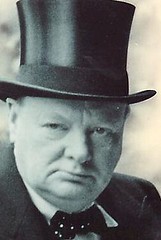Running for the US Presidency (DMS)
Interview with Rudy Giuliani.
"(...) probably what government can do best is to try to limit spending and try to bring down government spending (...)"
"Taxes get reduced, more revenue come in."
"(...) I'm against most taxes. I think that taxes have to exist. They should exist at the lowest possible level and to the extent that we can, we shouldn't invent more. Maybe that's my experience being mayor of New York City, where we had so many taxes.(...)"
"(...) We're spending too much time focusing on Iraq. Very, very important. We've got to get it right. But on the other hand, this whole terrorist war against us is bigger than just Iraq. Iran, as we know, is enormously important, maybe more dangerous than Iraq. Syria, Pakistan, Afghanistan, making sure we--making sure we've crushed al-Qaeda, making sure the Taliban does re-emerge, finally catching bin Laden and putting him--putting him--putting him on trial or bringing him to justice or--there's got to be some end to that and justice has to happen there. So there's a lot here. The way I've described it is we've got to be on offense against terrorists. And I think that Congress, at least the Democrats in Congress, and some Republicans, are trying to look at Iraq in a vacuum, as if it's all by itself, it's just one little problem and it isn't. Iraq affects the entire view of the terrorists against us.
And they trip comparing it to Vietnam, but there's a big difference with Vietnam. The scare was different. But also, the communists and the Cold War was another situation in which they were planning to come here and kill us. And they never did come here and kill us. In the long stretch of the Cold War, they never came into the United States and infiltrated and blew up the World Trade Center or tried to blow up the Brooklyn Bridge or tried to blow up train stations and buses in London or--so this is a different kind of enemy, and it's an enemy that has tremendous aggression toward us.
So when you look at Iraq, you got to say to yourself, how do we want that to end in order to reduce that aggression or how is it going to increase that aggression? Now, if we have a great victory, it is going to increase that aggression. And it's also going to lead to a regional war. So we've got to get it right. And I think that this idea of putting timetables down, that, I don't get at all. I don't understand where the common sense comes about in wanting to tell your enemy the time for your retreat. I can't imagine in the long history of war that that's ever been very successful. You just announce to your enemy, you know, on March, this date, and July that date, they're going to take out so many--so they know exactly how weak we are at certain points in time. It makes no sense. It has to be an overreaction and not a clear appreciation of what needs to be done after September 11th to be on offense against terrorists (...)".














